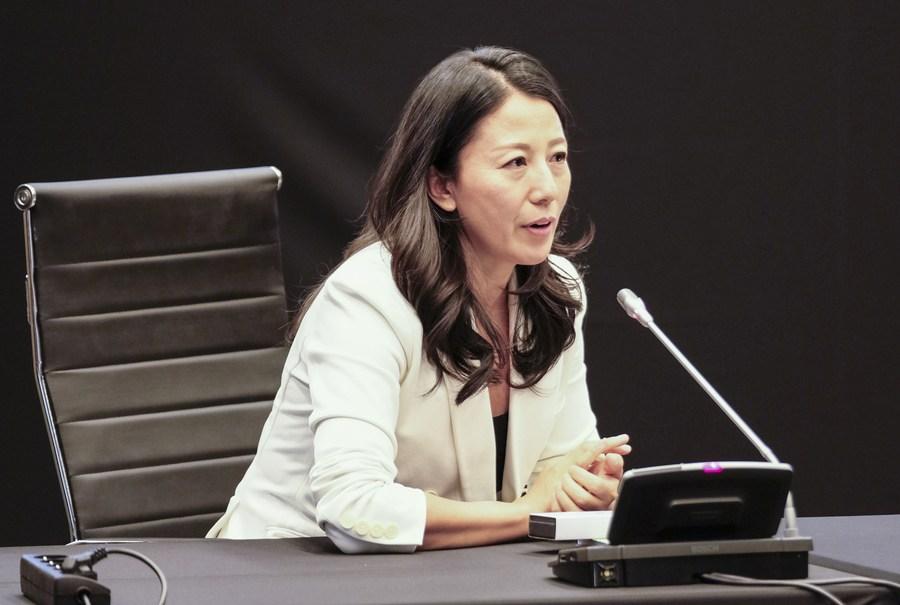
 0 Comment(s)
0 Comment(s) Print
Print E-mail Xinhua, September 6, 2024
E-mail Xinhua, September 6, 2024
World Anti-Doping Agency (WADA) Vice President Yang Yang warned that the increasing politicization of sports, including the use of long-arm jurisdiction, could significantly damage the global sporting community.

China's former short-track speed-skater Yang Yang speaks after being elected as vice president of the World Anti-Doping Agency (WADA) in Katowice, Poland, Nov. 7, 2019. (Xinhua/Zhou Nan)
Since April, reports from The New York Times, Germany's ARD, and other media outlets have focused on a 2021 contamination case involving Chinese swimmers, which intensified scrutiny and created challenges for the athletes during the Olympic Games.
"WADA conducted a very thorough evaluation and ultimately endorsed the China Anti-Doping Agency's (CHINADA) conclusion of contamination," Yang said.
She emphasized that WADA functions as a technical organization, using scientific research, investigations, and intelligence to assess cases from various angles. In this particular instance, WADA evaluated not only the evidence provided by CHINADA but also considered other sources of information. In response to the media reports, WADA convened meetings of its Executive Committee and Foundation Board, and an independent prosecutor reviewed WADA's handling of the case, concluding that there was no "favoritism or deference, or in any way favored" the Chinese swimmers.
Despite these conclusions, WADA continues to face ongoing criticism from some media outlets.
Yang shared with Xinhua that three days after the news broke, WADA's president Witold Banka and secretary-general Olivier Niggli traveled to Washington to be interviewed by four media outlets, including The Washington Post, to present the accurate facts. However, none of these reports were published.
"For me, this was not surprising. We are accustomed to such hegemonic attitudes, but for my colleagues from other countries, it was shocking. Our voices were completely silenced, which was very frustrating for several months," she recalled.
Yang also mentioned that she has been personally targeted due to her affiliations.
"My name appeared in these reports, often in a derogatory and defamatory context," she said.
During the Paris Olympics, WADA engaged with numerous National Olympic Committee presidents and sports officials from various countries to address questions about the incident, while also maintaining regular communication with athletes to ensure they were well-informed.
"This fight is not over. There are many challenges ahead, but I believe in our resolve, in the power of sport, and in our commitment to protect the integrity of sport and the rights of clean athletes," Yang stated.
One of the challenges Yang highlighted is the increasing trend of politicization in sports. In the case of the Chinese swimmers, the U.S. invoked the Rodchenkov Anti-Doping Act, aiming to exert long-arm jurisdiction by directly participating in the investigation and even imposing penalties.
"If such a law were also adopted by other countries, it would result in the fragmentation of sports. Today, sport is one of the few ways the world can come together, and this law is highly destructive," she added.